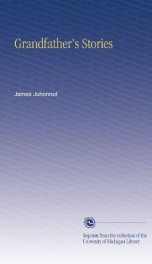principles and practices of teaching

Purchase of this book includes free trial access to www.million-books.com where you can read more than a million books for free. This is an OCR edition with typos. Excerpt from book: CHAPTER m. OBJECTIVE COURSE OF INSTRUCTION. General Yiew Of Present Practices.Until within a comparatively recent period, little attention has been given to the principles which must govern every intelligent effort to impart instruction. Teachers have been content to follow the methods in which they themselves were taught, until the process of teaching has become a mere mechanical routine. Preliminary to the examination of philosophical methods of teaching, we shall notice some of the practicesthey can scarcely be called methodswhich are always to be avoided. Wrong Practices. The great conspicuous evil practice in our schools, once almost universal, and still widely prevalent, is that of obliging pupils to commit to memory the words of the text-book. This practice seems to have its origin either in the ignorance or the indolence of the teacher, and is one calculated directly to stultify, rather than expand, the mind. It fixes the primary attention on words rather than on thoughts, which words are arranged to express. The words memorized to-day are forgotten to-morrow, and often thethought is never obtained. This process, by substituting apparent for real knowledge, so far consumes the time of the pupil that the attainment of real knowledge is rendered nearly or quite impossible during the school period. Examples of this Practice.Pupils are frequently obliged to recite, verbatim, the outlines of history, and teachers often defend the practice of rote-teaching in this study after they have given it up in the' other branches of instruction. Upon examining a class instructed in this manner, in one of the most noted schools in the country, a few years since, it was found that the pupils could glibly repeat the lesson of to-day; that they could recite about half of ... --This text refers to an alternate Paperback edition.
Info about the book
Author:
Series:
Unknown
ISBN:
1445571439
Rating:
4.5/5 (2)Your rating:
0/5
Languge:
English
Users who have this book
Users who want this book
What readers are saying
What do you think? Write your own comment on this book!
write a commentif you like principles and practices of teaching try:
Do you want to read a book that interests you? It’s EASY!
Create an account and send a request for reading to other users on the Webpage of the book!










